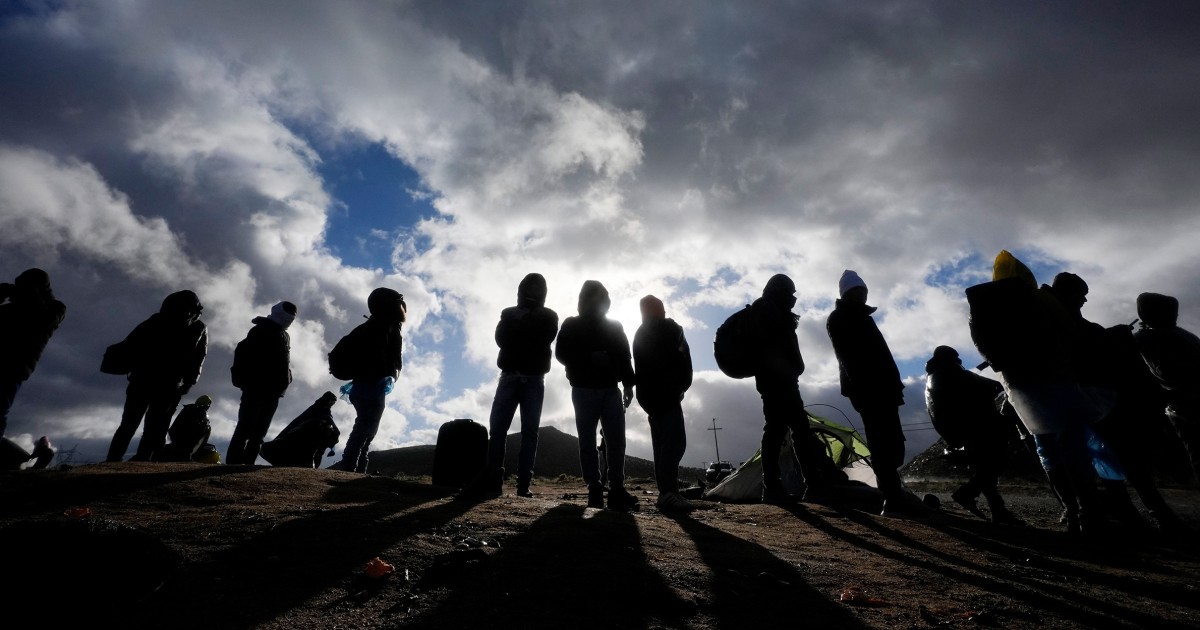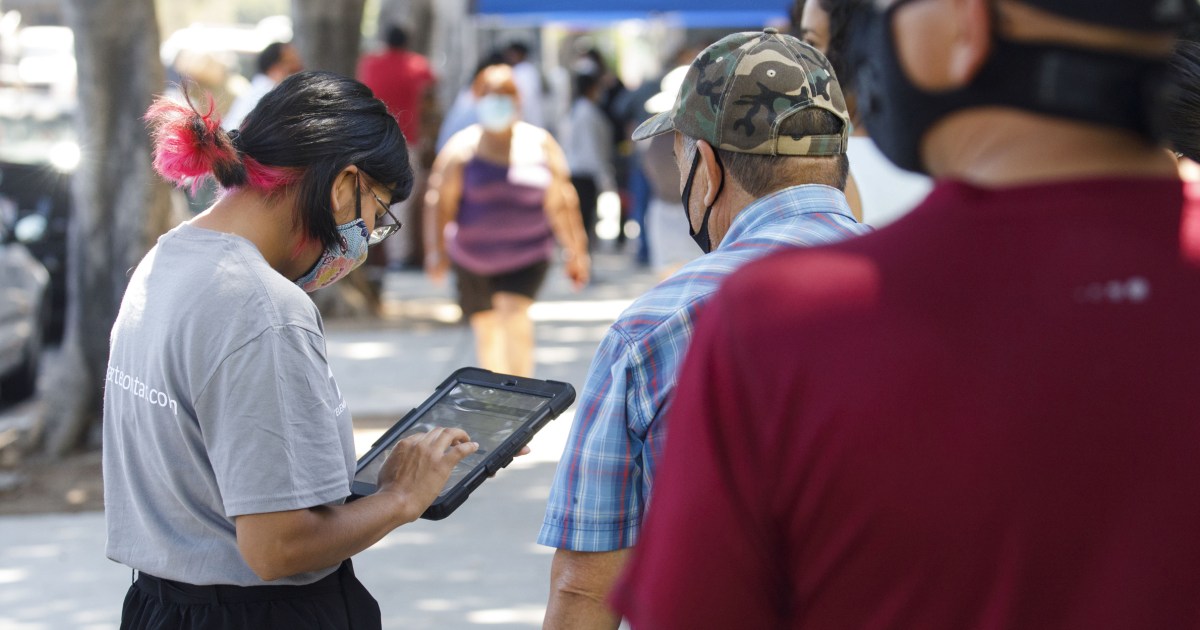A new national survey revealed this Wednesday that
47% of Latino adults have not yet been vaccinated against COVID-19.
The figure is even higher among young people:
56% of Hispanics
ages 18-29 are not immunized
, compared to 20% of those 65 and older who are not vaccinated, the survey shows.
Given that the Latino population in the United States is young (average age 28), low vaccination rates among younger Latinos are reducing the overall rate for this population.
[Follow our coverage of the coronavirus pandemic]
The survey was conducted by BSP Research and the African American Research Collaboration (AARC), who interviewed more than 13,000 people across the country by phone and online and in multiple languages.
Vaccination has also varied greatly depending on the socioeconomic conditions or immigration status of Hispanics.
Mariachis and gift cards: this campaign manages to encourage Latinos to get vaccinated against COVID-19
June 4, 202100: 34
Latinos who speak Spanish have higher vaccination rates than those who speak English
, for example.
In general, those living in rural areas also show lower immunization rates.
And non-citizens are getting vaccinated less than immigrants who are already naturalized.
It was already known that Latinos were getting vaccinated less than other groups, but it was not known how this varied based on age or other factors.
Current CDC vaccination figures are broken down by race or ethnicity only and show significant differences.
Whites far exceed the percentage of other groups that inoculate in the United States.
It also shows that the vaccination rate among blacks and Latinos does not match their proportion of the total population, although recent data from the CDC shows some progress since mid-May.
Why do they hesitate to get vaccinated?
Among Hispanics who have not yet been vaccinated, a major concern is
the risk of blood clots and other side effects.
But the lack of access to information on inoculations also contributes, as
38% say they do not know where or how to get vaccinated.
Marcos Cruz, a farmer, receives a dose of Johnson & Johnson vaccine against COVID-19 at a vaccination site organized by the United Farm Workers (UFW), in Forty Acres on March 13, 2021 in Delano, California.Patrick T. Fallon / AFP via Getty Images
Those planning to get vaccinated say their
preferred place to get it would be during a doctor's visit, followed by a hospital.
Massive public vaccination sites, such as stadiums, have less support.
Those they trust the most are, in order, their personal physician, Latino doctors and nurses, friends or family members who have been vaccinated, and local hospitals.
Among Latinos who have not yet been vaccinated, a vast majority say they
are more likely to get vaccinated to protect the health of their family.
The vast majority of myocarditis cases in young people vaccinated against COVID-19 have recovered
June 11, 202101: 44
26% plan to do it as soon as possible, but
51% say they probably will not get vaccinated.
It is
important to note that so far
no data has been collected on the race and ethnicity of many people who have been vaccinated.
As of May 3, the CDC reported that race and ethnicity were known to only 55% of people who have received at least one dose of the vaccine.
And three states - Montana, New Hampshire and Wyoming - report no race or ethnicity data at all.
[Be careful: there is no proof that ivermectin cures COVID-19]
Uché Blackstock, founder of Advancing Health Equity, an organization that advocates ending prejudice and racism in health care, said that the mark to measure the success of vaccine equity must be more than reaching an equal ratio between racial populations. .
"Success in vaccination equity would be for black or Hispanic people to be overrepresented in terms of vaccines received, as the pandemic has disproportionately affected them," Blackstock said.
In fact, the CDC describes vaccination equality as "preferential access and administration for those who have been most affected by COVID-19."













/cloudfront-eu-central-1.images.arcpublishing.com/prisa/KMEYMJKESBAZBE4MRBAM4TGHIQ.jpg)

